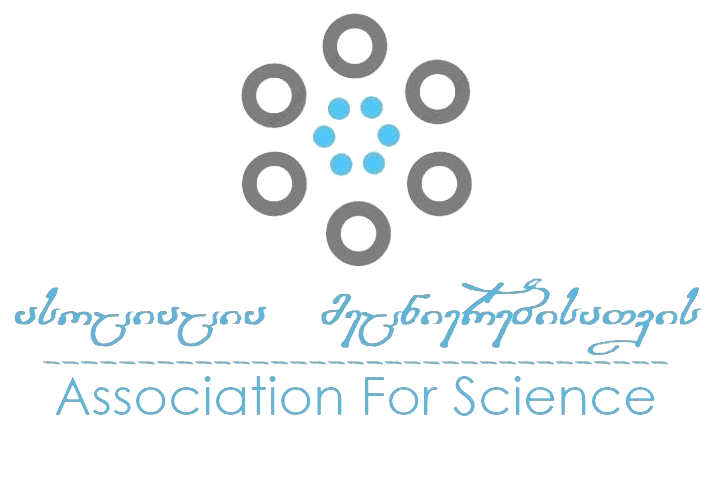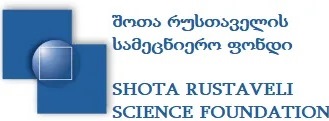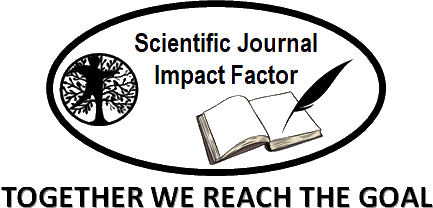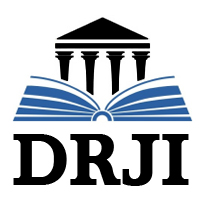The Concept of Pax Russica, Russian Strategic Narratives and their Possible Impact on Populist Movements and the Russophone Community in Estonia
DOI:
https://doi.org/10.55804/TSU-ti-1/SazonovKeywords:
Pax Russica, Estonia, Populist MovementsAbstract
In recent years, the Russian Federation has increased its aggressive rhetoric and information campaigns against the Baltic states as they identify these countries among the most vulnerable part of the West, which may be potentially handled by the Kremlin as a potential target audience for information and influence operations in their status conflict with the West. Moreover, the tools of information and influence operations of Russian Federation include all kinds of intimidation and manipulation techniques from cyber-attacks to political extortion among others. The research focuses on studying political influence Russia expectedly pursues through strategic narratives that find their way to reaching target audience. The research is primarily based on media analysis of Estonian media outlets in Estonian and Russian language and on structured interviews with various political figures and experts, opinion leaders, and representatives of Russophone community in Estonia.Probably the most fundamental idea of the modern state philosophy of the Russian Federation is the concept of the ‘Pax Russica’ (Russian World), which has been intensively developed during the last decade, promoted by abundant PR companies and information campaigns for the Russian-speaking internal and external audiences in mass media, social media, but also in popular and scientific literature. The concept of ‘Pax Russica’ has been used by Russian political elites as an ideological tool to unite all Russian-speaking people worldwide and to create a global Russian-speaking cultural, ideological, historical, social, political, economic and informational space as a powerful alternative to the Soviet Union or the Russian Empire. The concept of ‘Pax Russica’ is closely related to the compatriots policy of the Russian Federation, in which Russia has declared that its duty is protect Russian-speaking people not only in Russia, but also abroad.Russian-speaking population makes up 26-27% of the Estonian 1,300,000 population, and approximately 80% of them live in two counties: Harjumaa (including capital Tallinn) and Ida-Virumaa (northeast of Estonia) and it has been a valuable target for information and influence operations coming from Russia. The Russophone audience in Estonia constantly receives messages and narratives from Russia’s media channels, many of them promote negative perceptions against the West (e.g., about the "immorality" of the West, about "misdeeds" and "aggression" of NATO), stoking up the fear of migrants and refugees and other harmful narratives that break down positive images related to European identity, values and security architecture. What is characteristic to the Russian strategic narratives, these tend to be rather destructive, with the aim to destroy their potential adversary than to promote positive images on Russia. Besides the Russian-speaking community, Russia often targets various populist movements in Europe (also in Estonia) from left to right, etc. Russia pretends to protect, and promote worship against liberalism.
References
Antoniades, A. et al (2010). Great Power Politics and Strategic Narratives. Global Political Economy. Centre for Global Political Economy University of Sussex Brighton, UK.
Arold, U. (2015). Infosõja mõistatus. Kaja. Journal of Communication and Public Relations 18, 9-14.
Armazanova (2020) = Армазанова, Т. Коронавирус разделяет Евросоюз. Inosmi.ru, 31.3.2020, https://inosmi.ru/politic/20200331/247165844.html (accessed 11.05.2021).
Baranov & Afonina (2020) = Баранов, А. & Афонина, Е. 2016. Прибалтийская русофобия и её истоки. Комсомольская Правда. Северная Европа, 08.04.2016, https://www.kp.ru/radio/26511/3531281/ (accessed 22.11.2020).
Baltnews (2017). The Independent: учения «Запад-2017» выставили НАТО фабрикой «fake news». Baltnews.ee 23.9.2017, http://baltnews.ee/mir/20170923/1016308913.html (accessed 21.11.2021).
Baltnews (2020a). В Эстонии проходит саммит "Инициативы трех морей" под сенью коронавируса и русофобии. Baltnews.ee, 20.10.2020, https://baltnews.ee/Estonia_politika_novosti/20201020/1019006439/V-Estonii-prokhodit-sammit-Initsiativy-trekh-morey-pod-senyu-koronavirusa-i-rusofobii.html (accessed 22.11.2020).
Baltnews (2020b). Ямщик пошел за хлыстом: Балтия серьезно рискует, преследуя русских журналистов. Baltnews.ee, 7.12.2020, https://baltnews.ee/Russia_West/20201207/1019141217/Yamschik-poshel-za-khlystom-Baltiya-serezno-riskuet-presleduya-russkikh-zhurnalistov.html (accessed 22.11.2020).
Baburin (2020) = Бабурин, Р. Даже во время эпидемии страны Балтии верны русофобии. Ритм Евразии, 6.4.2020. https://www.ritmeurasia.org/news--2020-04-06--dazhe-vo-vremja-epidemii-strany-baltiiverny-rusofobii-48323 (accessed 11.5.2020).
Darczewska, J. & Żochowski, P. (2015). Russophobia in the Kremlin’s Strategy. A Weapon of Mass Destruction. Point of View 56. Warsaw: Centre of East European Studies.
Darczewska, J., & Żochowski, P. (2017). Russia’s “activity” toward the West—Confrontation by choice. Russian Analytical Digest, 212, 2–5.
Delfi.ee (2022). Mart Helme seostas Ukraina sõjapõgenikke prostitutsiooni ja HI-viiruse tagasitulekuga. Ratas: õudne ja tülgastav! Delfi, 13.4.2022, https://www.delfi.ee/artikkel/96407309/mart-helme-seostas-ukraina-sojapogenikke-prostitutsiooni-ja-hi-viiruse-tagasitulekuga-ratas-oudne-ja-tulgastav (accessed 23.5.2022).
Err.ee (2019). Sputnik peatas Eestis tegevuse, Err.ee, 31.12.2019, https://www.err.ee/1019225/sputnik-peatas-eestis-tegevuse (accessed 11.7.2021).
Err.ee (2022a). “TTJA bans Russian sites for naming Ukrainians Nazi”” [“TTJA keelab Vene saidid ukrainlaste natsiks nimetamise eest”] Er.ee, March 16. https://www.err.ee/1608533743/ttja-keelab-vene-saidid-ukrainlaste-natsiksnimetamise-ees (accessed 11.7.2021).
EuroMaidan Press (2014). Russian media lies: prostitution and the Ukrainian National Guard, EuroMaidan Press 11.10.2014, https://euromaidanpress.com/2014/11/10/russian-media-lies-prostitution-and-the-ukrainian-national-guard/ (accessed 23.5.2022).
Eslas, U. (2017). A Russian propaganda website has turned a local joke about the Estonian-Russian border fence into an anti-NATO narrative directed at Estonia’s ethnic Russians. CEPA, 31 May 2017. http://infowar.cepa.org/Briefs/Est/How-a-social-media-joke-became-anti-NATO-prop-Estonia (accessed 17.12.2022).
Flick, U. (2006). An introduction to qualitative research. 3rd ed. Los Angeles etc: SAGE Publications.
Grigoryan = Григорян, Р. (2014). Григорян: интеграция по-эстонски обречена на провал. СКП-КПСС, 02 December 2014. Retrieved from http://skpkpss.ru/02-12-2014-novosti-estonii-rafik-grigoryan-integraciya-po-estonski-obrechena-na-proval/ (accessed 26 Oct 2021).
Hinck, R. S.; Kluver, R. & Cooley, S. (2018). Russia re-envisions the world: strategic narratives in Russian broadcast and news media during 2015. Russian Journal of Communication 10(1), 21–37.
Hsieh, H.-F., & Shannon, S. E. (2005). Three Approaches to Qualitative Content Analysis. Qualitative Health Research, 15(9), 1277–1288.
Impressum 2021. Impressum. International Media Club, http://www.impressum-club.eu/
Itshenko, P. (2014). “Русский мир и национальный вопрос”. Эксперт online. 7.09.2014 http://expert.ru/expert/2014/37/russkij-mir-i-natsionalnyij-vopros/ (accessed 2.2.2022).
Karlsen, G.H. (2019). Divide and rule: ten lessons about Russian political influence activities in Europe. Palgrave Communication, 5(19), 1−14.
Klensky, D. (2017). Эстонский плевок в ответ на непонятный визит Швыдкого. Regnum, 14.11,2017, https://regnum.ru/news/polit/2345222.html (accessed 3.11.2019).
Klensky, D. (2016). Эстония: Замесь патриотизма с русофобией даёт национализм. REX Information Agency, 22 Dec 2016, http://www.iarex.ru/articles/53412.html (accessed 3.12.2019).
Klensky, D. 2020. Коронавирус разоблачил русофобию СМИ Эстонии или Технология проявления мягкой ксенофобии. Baltia.eu, 8.10.2020, https://baltija.eu/2020/10/09/koronavirus-razoblachil-rusofobiyu-smi-estonii-ili-tehnologiya-proyavleniya-myagkoj-ksenofobii/ (accessed 16.12.2020)
Krugley, I. (2020). Коронавирус ≪схлопнул≫ Шенген: куда теперь податься прибалтийским гастарбайтерам. Baltnews, 1.4.2020. https://lv.baltnews.com/ekonomika_online_novosti/20200401/1023795618/Koronavirus-skhlopnul-Shengen-kuda-teper-podatsyapribaltiyskim-gastarbayteram.html (accessed 16.12.2021)
Kuckartz, U. (2014). Qualitative Text Analysis: A Guide to Methods. Practice & Using Software. London: Sage Publications.
Laclau, E. (2007). On populist reason. London and New York: Verso.
Laruelle, M. & Radvanyi, J. (2018). Understanding Russia: The Challenges of Transformation. Rowman and Littlefield Publisher.
Lepik, K., Harro-Loit, H., Kello, K., Linno, M., Selg, M. & Strömpl, J. (2014). Interview http://samm.ut.ee/interview (accessed 26.4.2022).
Lucas, E., & Pomerantsev, P. (2016). Winning the information war: Techniques and counter-strategies to Russian propaganda in Central and Eastern Europe. Washington, DC: Center for European Policy Analysis.
Makarychev, A. & Sazonov, V. (2019). Populisms, popular geopolitics and the politics of belonging in Estonia. European Politics and Society 20/4, 450-469.
Makarychev, A. (2020). Russian “cognitive propaganda”: the case of Impressum Club in Tallinn. Ponars Eurasia 7.8.2020, https://www.ponarseurasia.org/article/russian-%E2%80%9Ccognitive-propaganda%E2%80%9D-case-impressum-club-tallinn-0 (accessed 8.12.2020).
Makarychev, A. & Sazonov, V., (2021). Populism, popular geopolitics and the politics of belonging in Estonia. In Multifaceted Nationalism and Illiberal Momentum at Europe’s Eastern Margins. Edited by Andrey Makarychev. London and New York: Routledge, 23–42.
Miskimmon, A. et al. (2018). Forging the World. Strategic Narratives and International Relations. University of Michigan Press
Mölder, H. & Sazonov, V. (2018). Information Warfare as the Hobbesian concept of Modern Times – Principles, Techniques and Tools of Russian Information Operations in Donbass. The Journal of Slavic Military Studies, 31 (3), 308−328.
Mölder, H. & Sazonov, V. (2020). Kremlin Information Campaign in the Baltic states During COVID-19 Pandemic Escalation of Spring. Modern Management Review, XXV (4), 83−97.
Mölder, H.; Shiraev, E. (2021). Global Knowledge Warfare, Strategic Imagination, Uncertainty and Fear. In H. Mölder, V. Sazonov, T. Kerikmäe & A. Chochia (Ed.). The Russian Federation in the Global Information Warfare. Influence Operations in Europe and Its Neighbourhood. Springer Verlag: Cham, 13−32.
Mölder, H.; Sazonov, V.; Chochia, A. & Kerikmäe, T. (eds.) (2021), The Russian Federation in the Global Knowledge Warfare: Influence Operations in Europe and Its Neighborhood, Springer Verlag: Cham.
Nikolayev (2020) = Николаев, Н. Коронавирус головного мозга: русофобов Эстонии Оскорбила помощь Москвы, RadioSputnik, 11.4.2020, access: https://radiosputnik.ria.ru/20200411/1569849152.html (accessed 13.05.2020).
Nissen, T. E. (2015). The Weaponization of Social Media: Characteristics of Contemporary Conflicts. Copenhagen: Royal Danish Defence College.
Nosovich (2020) = Носович, A. Некуда сбыть безработных: Прибалтику ожидает самый страшный экономический кризис. RuBaltic.ru, 10.4.2020. https://www.rubaltic.ru/article/ekonomika-i-biznes/10042020-nekuda-sbyt-bezrabotnykh-pribaltiku-ozhidaet-samyy-strashnyy-ekonomicheskiy-krizis/ (accessed 9.11.2021).
Paier, A.; Sazonov, V. (2019). From the Comintern to Putin: Russian Ties with Italy. Diplomaatia, 24.10.2020, https://icds.ee/en/from-the-comintern-to-putin-russian-ties-with-italy/ [accessed 10 Oct 2021]
Paris, K. (2022). Oudekki Loone hoiatab: Ukrainasse relvi saates hakataks neid kasutama venelaste vastu. Eesti Päevaleht, 6.1.2022, https://epl.delfi.ee/artikkel/95577941/erisaade-oudekki-loone-hoiatab-ukrainasse-relvi-saates-hakataks-neid-kasutama-venelaste-vastu (accessed 22.4.2022).
Piatrinis (2020) = Пятринис, А. Захват ЕС. Как коронавирус убил единую Европу и показал, кто есть кто, Sputniknews, 21.3.2020, https://lt.sputniknews.ru/columnists/20200321/11659770/Zakhvat-ES-Kak-koronavirus-ubil-edinuyu-Evropu-i-pokazal-kto-est-kto.html (accessed 22.11.2020).
Propastop, 2019. “Over one hundred fake accounts are connected with #ESTexitEU” Propastop, January 8. https://www.propastop.org/eng/2019/01/08/over-one-hundred-fake-accounts-are-connected-with-estexiteu/ (accessed 12.3.2022).
Radin, A. (2017). Hybrid Warfare in the Baltics: Threats and Potential Responses, Santa Monica: Rand Corporation
Robotrolling (2/2019). NATO Stratetic Communications Centre for Excellence. Riga. https://www.stratcomcoe.org/robotrolling-20192 (accessed 7.11.2020).
Robotrolling (3/2018). NATO Stratetic Communications Centre for Excellence. Riga. https://www.stratcomcoe.org/robotrolling-20183 (accessed 7.9.2021).
Rooda, V. (2017). "Zapad 2017" – kingitus Baltimaade russofoobidele. Sputnik-news, 22.7.2017, https://sputnik-news.ee/analytics/20170722/6540966/Zapad 2017-kingitus-baltimaade-russofoobidele.html (t accessed 3.04.2022).
Roselle, L., Miskimmon, A, O'Loughlin, B. (2013). Strategic Narratives: Communication Power and the New World Order, Routledge.
Roselle, L. et al. 2021. Strateegiline narratiiv: pehme jõu uus käsitlus. Sõjateadlane, 17, 13-32.
Russkiy Mir Foundation, http://russkiymir.ru/fund/ (accessed 28.12.2021).
Saarniit, A. (2022). Kõik keskerakondlased avaldusega Ukraina toetuseks ei ühinenud. Postimees, 23.2.2022, https://www.postimees.ee/7461415/koik-keskerakondlased-avaldusega-ukraina-toetuseks-ei-uhinenud (accessed 22.5.2022).
Sazonov, V. 2022. Russian strategic narratives disseminated during COVID-19 aiming to influence and increase radicalisation in the political sphere in the EU and to destabilize the security environment of the EU. In: Workshop: Producing cultural change: how political populism and extremism can influence the development of international political and security environment? The Joint Sessions of Workshops 19 – 22 April 2022, The University of Edinburgh. Ed. Holger Mölder, Camelia Voinea. Edinburgh: The University of Edinburgh.
Sazonov, V. & Mölder, H. (2022). Compatriot policy on the borders of empires’ in S. Fink et al. (Ed.). Minorities at the Edges of Empires, Münster: Zaphon Verlag (forthcoming)
Sazonov, V.; Ploom, I. & Veebel, V. (2022). The Kremlin’s information influence campaigns in Estonia and the Estonian response in the context of Russian-Western relations. TalTech Journal of European Studies, 12 (in press)
Shiraev, E. & Mölder, H. (2020). Global Knowledge Warfare: Using Strategic Imagination to Harness Uncertainty and Fear. The Cipher Brief, 31.8.2020, https://www.thecipherbrief.com/article/china/global-knowledge-warfare-using-strategic-imagination-to-harness-uncertainty-and-fear (accessed 23.5.2022).
Spriņģe, I. (2018). How Russian Propaganda Becomes Even Nastier in Baltic News, “Re:Baltica”, 29.03.2018, https://en.rebaltica.lv/2017/03/how-russian-propaganda-becomeseven-nastier-in-baltic-news/ (accessed 24.4.2020).
Sycheva (2007) = Сычева, Л. Русский мир, русская культура, русский мир. РФ Сегодня 14/2007, http://russia-today.ru/old/archive/2007/no_14/14_look.htm. (accessed 2.6.2021)
Tass (2014). Russian scientist ordered out of Estonia sues Estonian Interior Ministry. Tass, 8 NOV 2014, https://tass.com/russia/760386 (accessed 22.11.2020).
Vinnikov, A. (2020). Коронавирус подарил Прибалтике новый повод для русофобии. Vzglyad, 7.4.2020, https://vz.ru/world/2020/4/7/1032712.html (accessed 2.6.2021)
Ventsel, A.; Hansson, S.; Madisson, M.-L. & Sazonov, V. (2021). Discourse of fear in strategic narratives: The case of Russia’s Zapad war games. Media War & Conflict, 14/1, 21−39.
Ventsel, A., Hansson, S., Madisson, M.-L. & Sazonov, V. (2018). Hirmu mehhanismid strateegilistes narratiivides õppuse Zapad 2017 näitel. Sõjateadlane 8, 103-127
Weiss, A. S. (2020). With Friends Like These: Kremlins Far-right and Populist Connections in Italy and Austria. Carnegie Endowment For International Peace, 27.2.2020, https://carnegieendowment.org/2020/02/27/with-friends-like-these-kremlin-s-far-right-and-populist-connections-in-italy-and-austria-pub-81100 (accessed 14.5.2021)
Winnerstig, M. (ed.) (2014). Tools of Destabilization. Russian Soft Power and Non-military Influence in the Baltic States, Report FOI-R-3990-SE, https://www.stratcomcoe.org/mike-winnerstig-ed-tools-destabilization-russian-soft-power-and-non-military-influence-baltic-states (accessed 19.10.2021)
Weyland, K. (2013). The Threat from the Populist Left. Journal of Democracy 24 (3): 18–32.
Wodak, R (2015). The politics of fear: What right-wing populist discourses mean. London: Sage.
Wlodarska-Frykowska, A. (2016). Ethnic Russian Minority in Estonia. International Studies: Interdisciplinary Political and Cultural Journal, vol. 18, N 2, 153-164.










